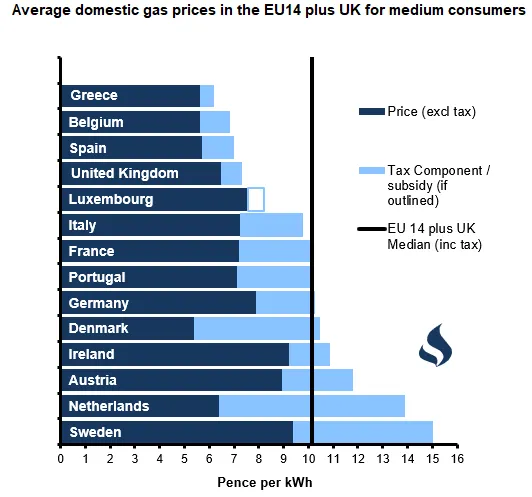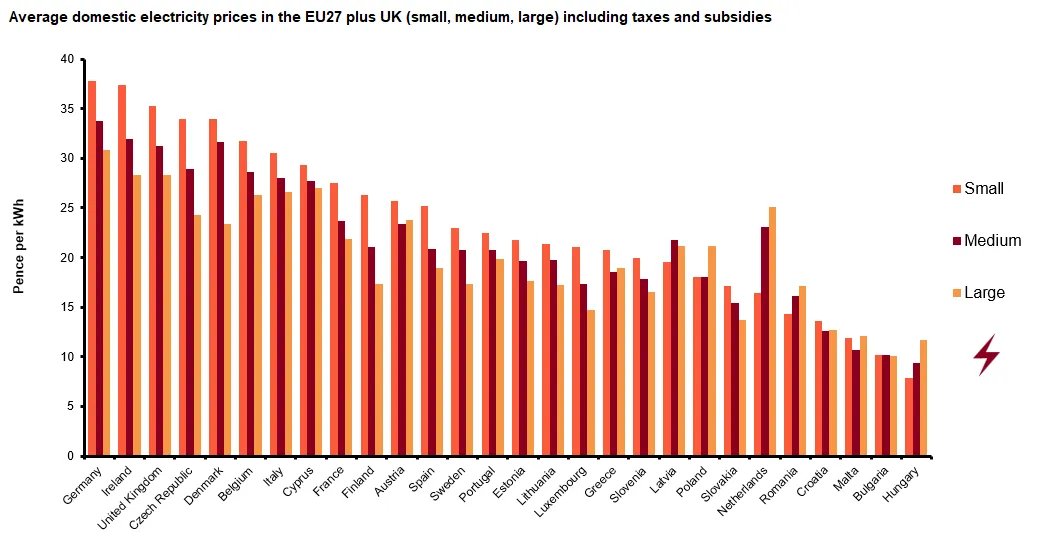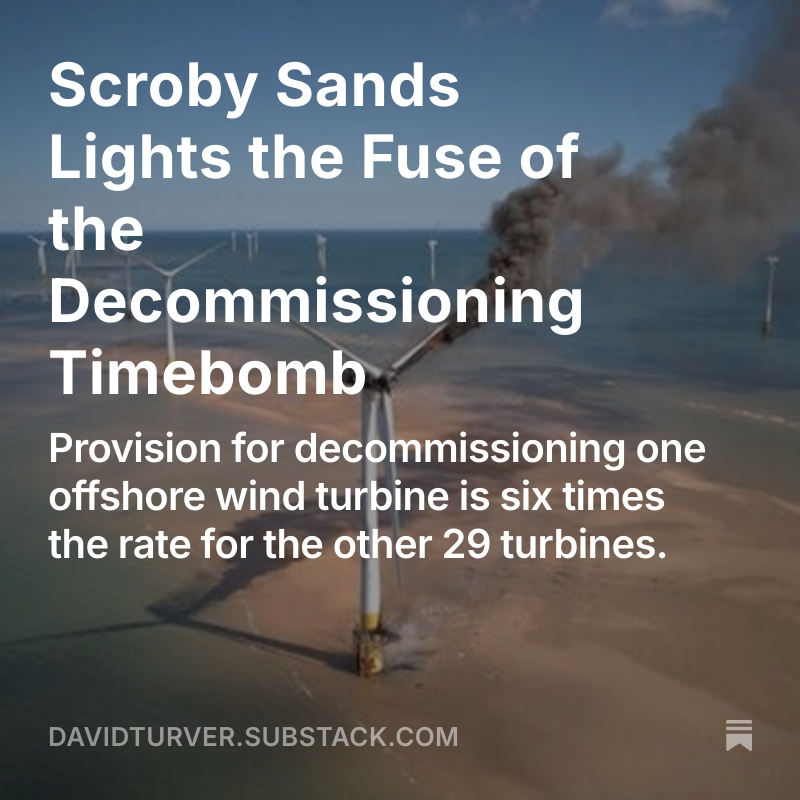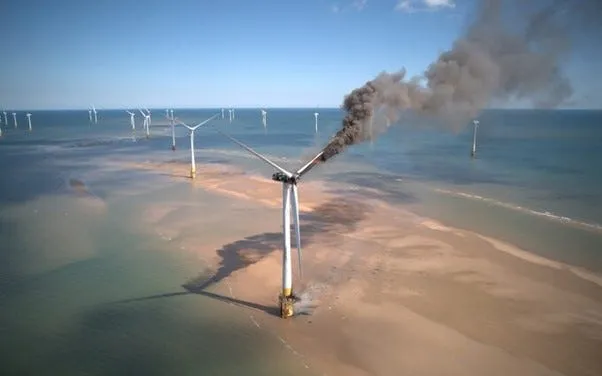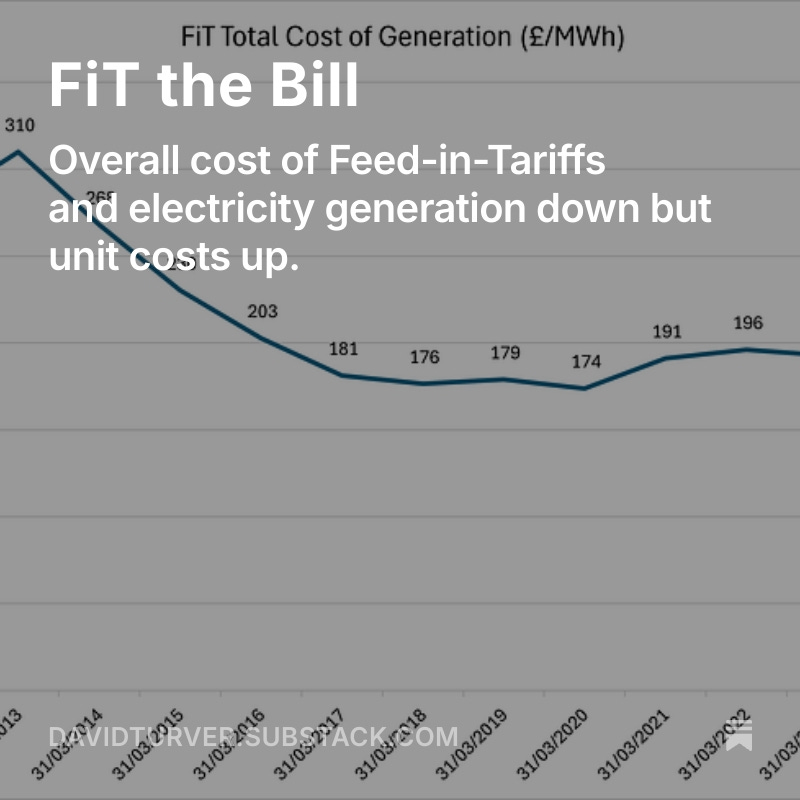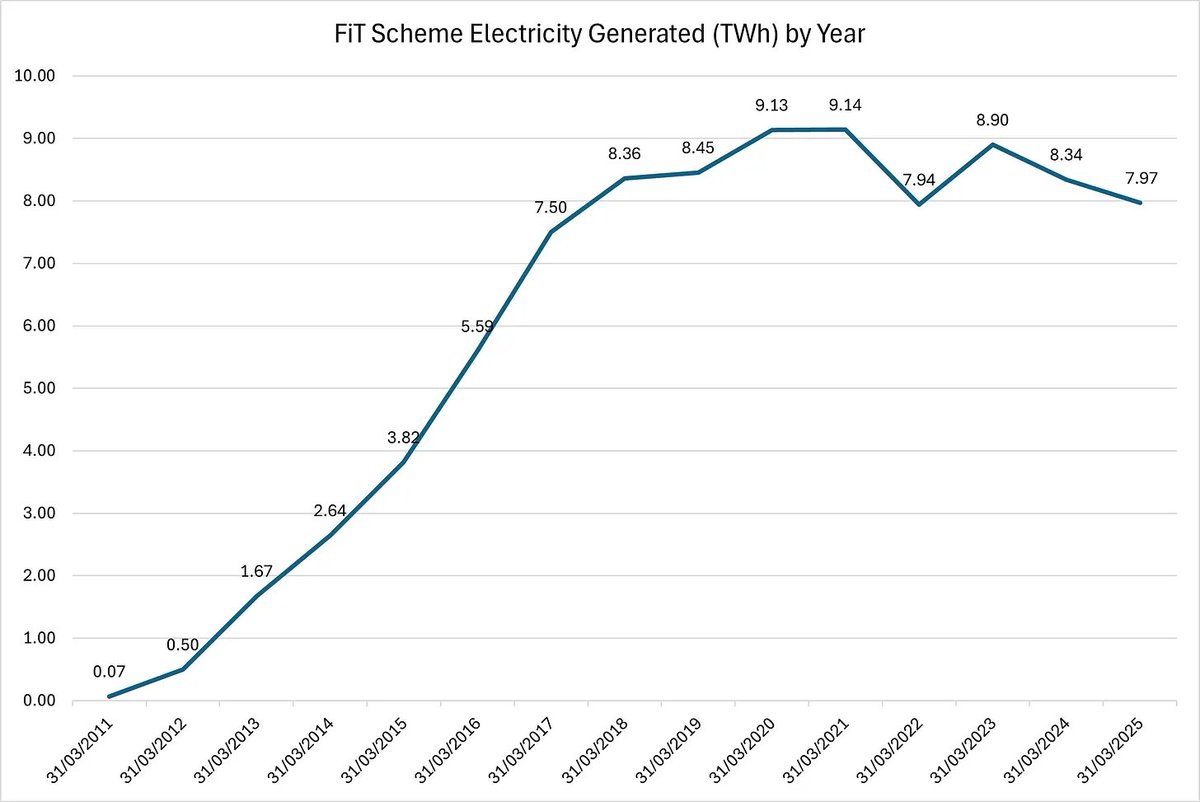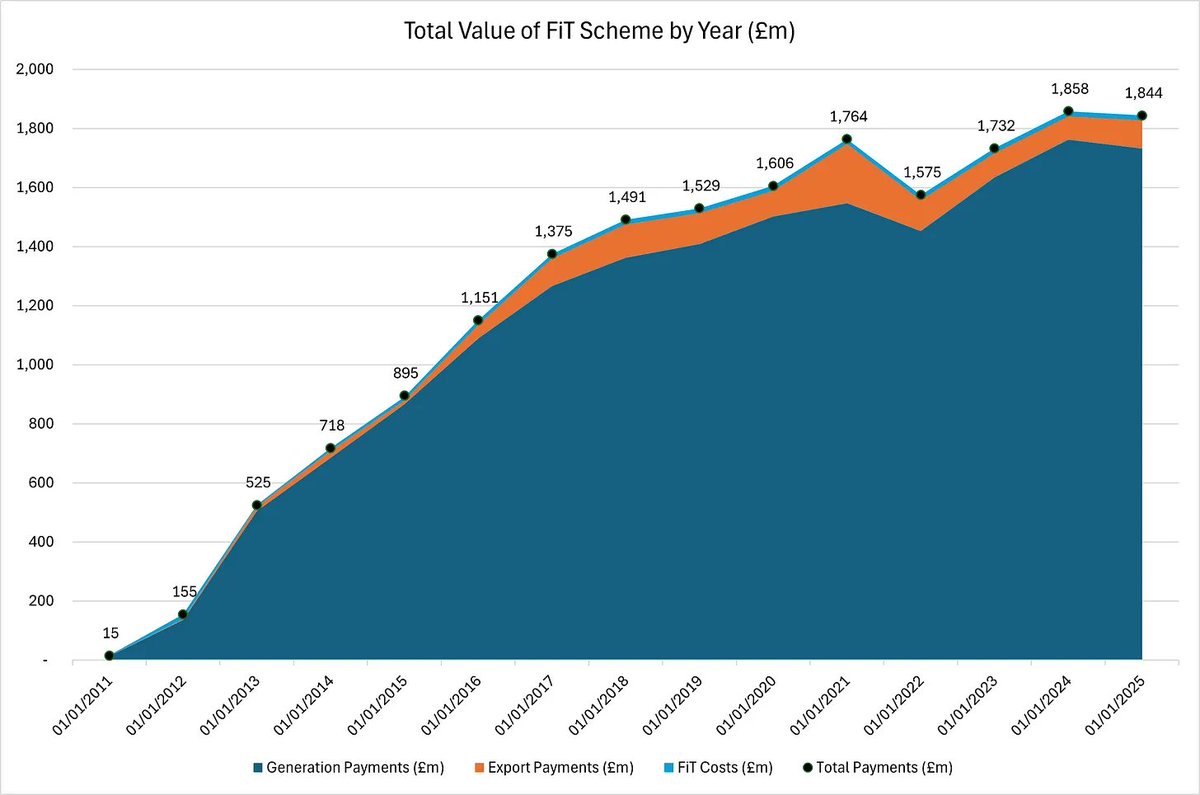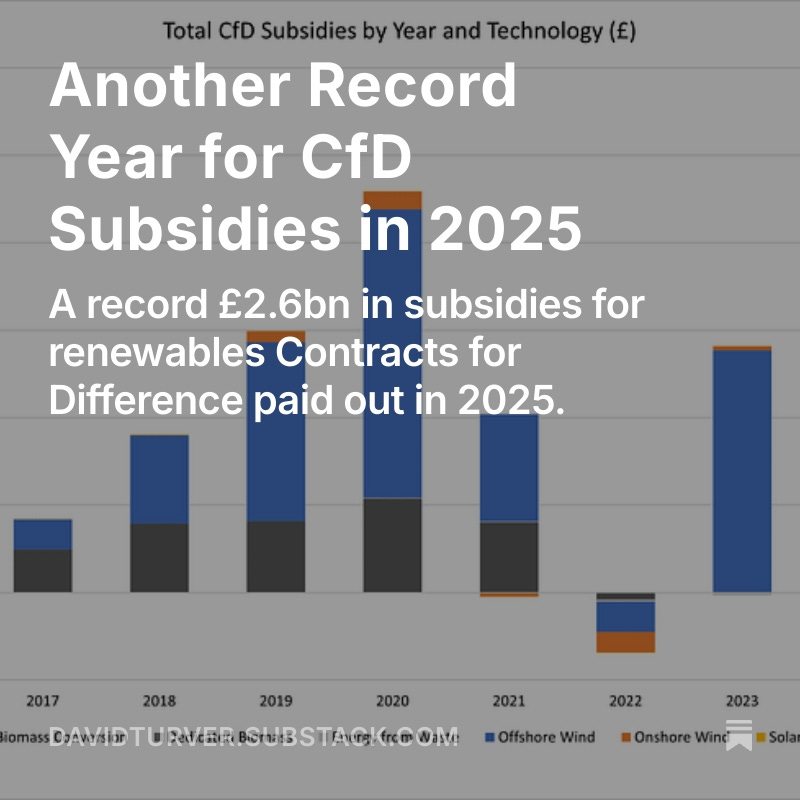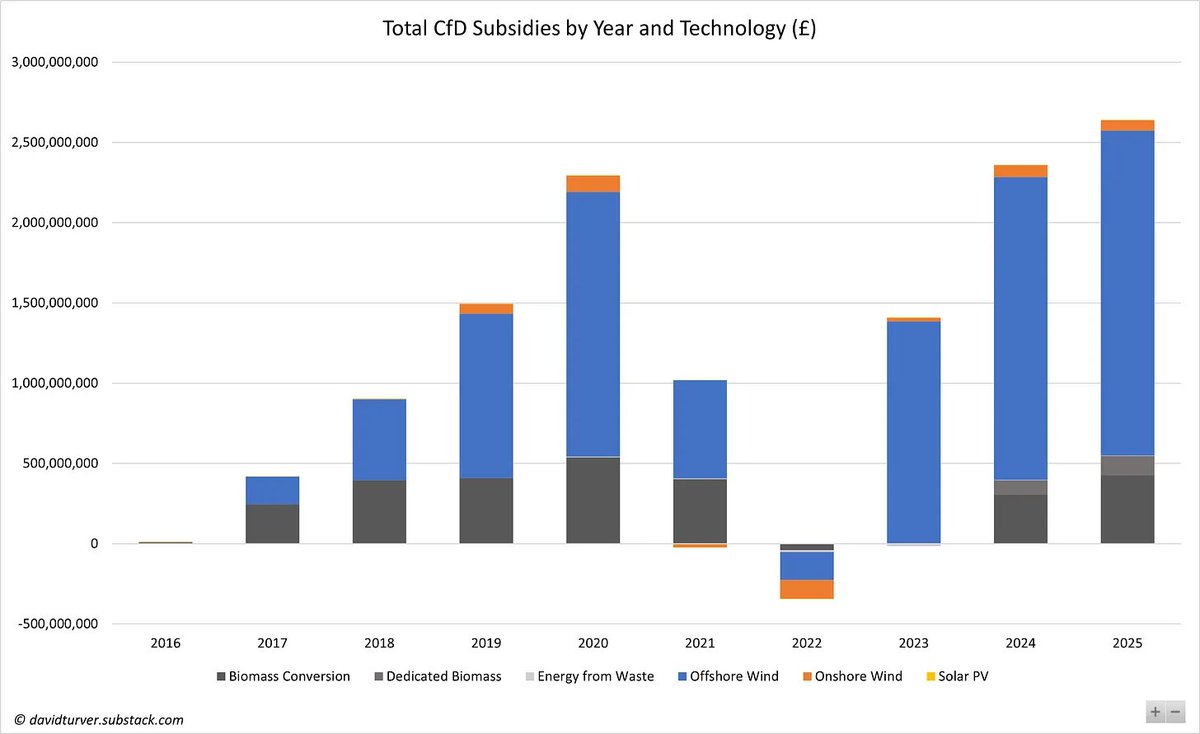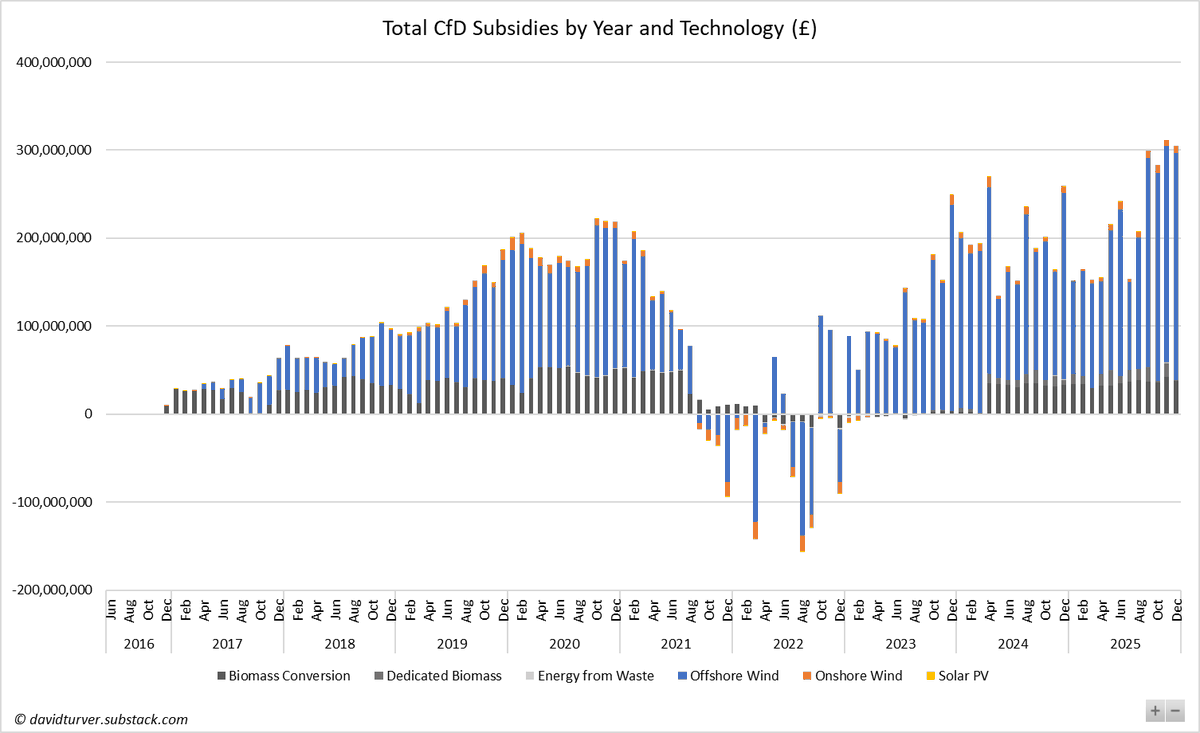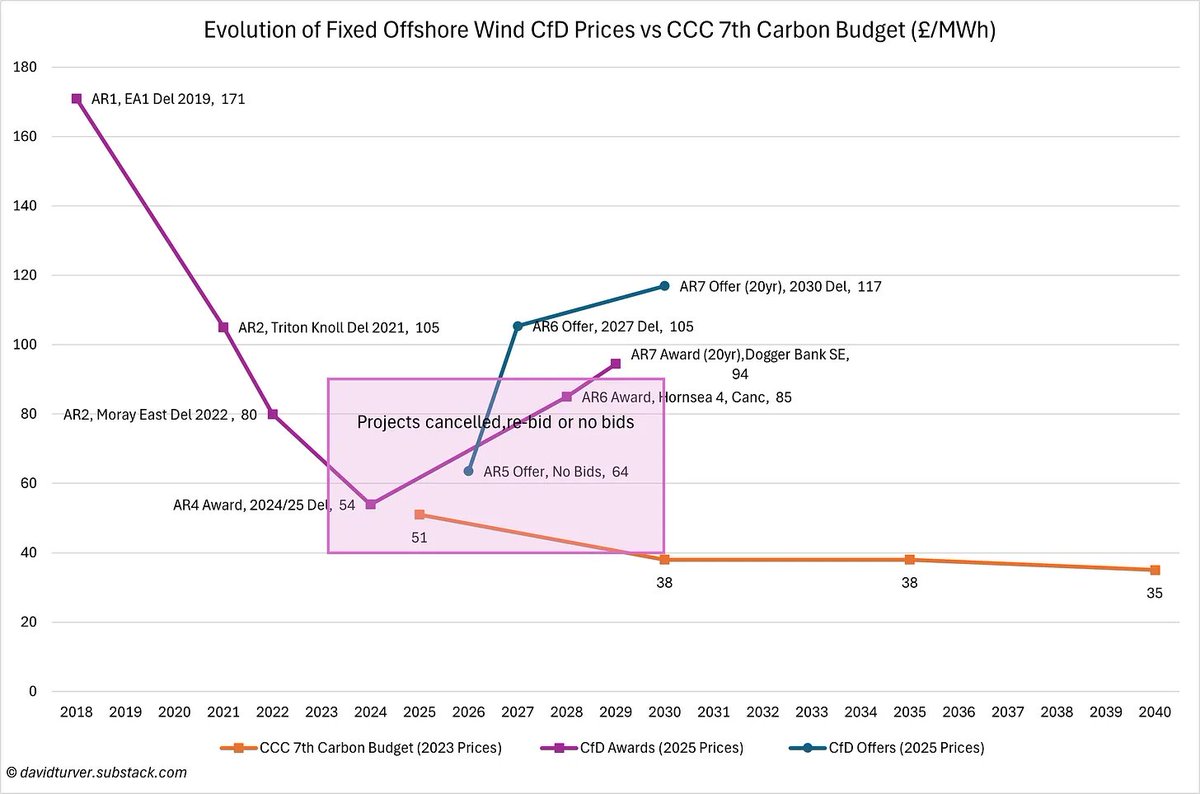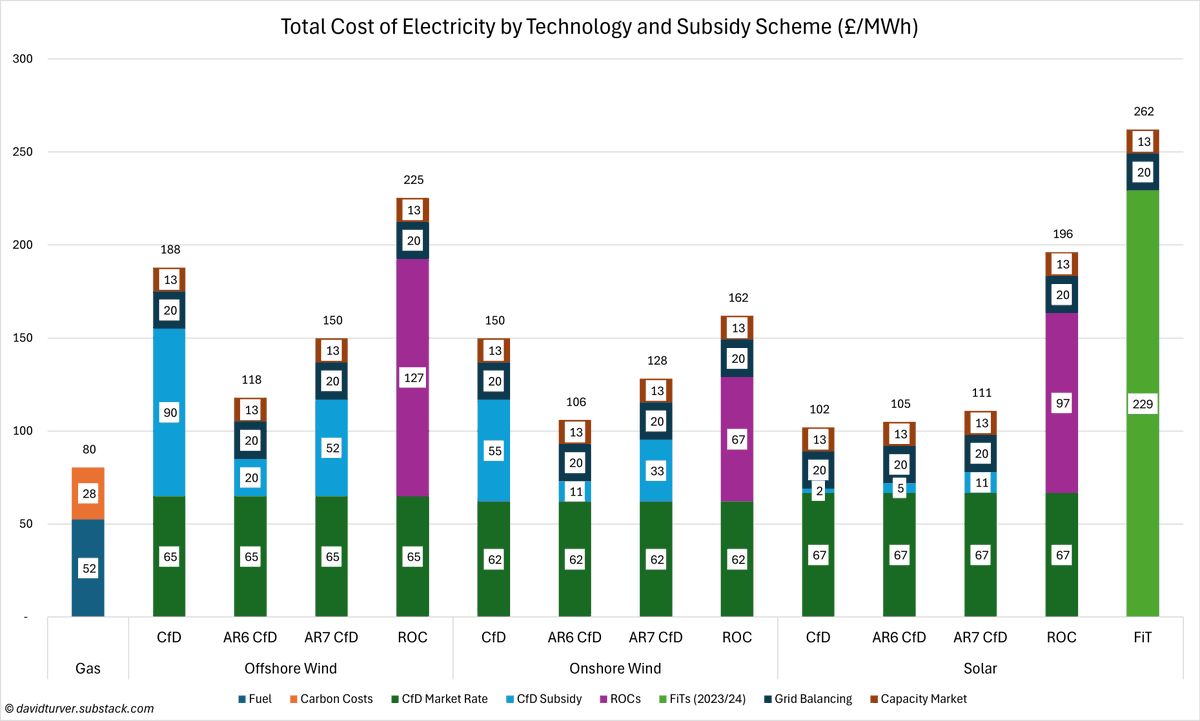New data came out yesterday comparing energy prices across Europe for Jan-Jun 2024. The UK has by far the highest industrial electricity prices in Europe. This thread explores why that might be and how we fare in domestic markets too. (1/n) 
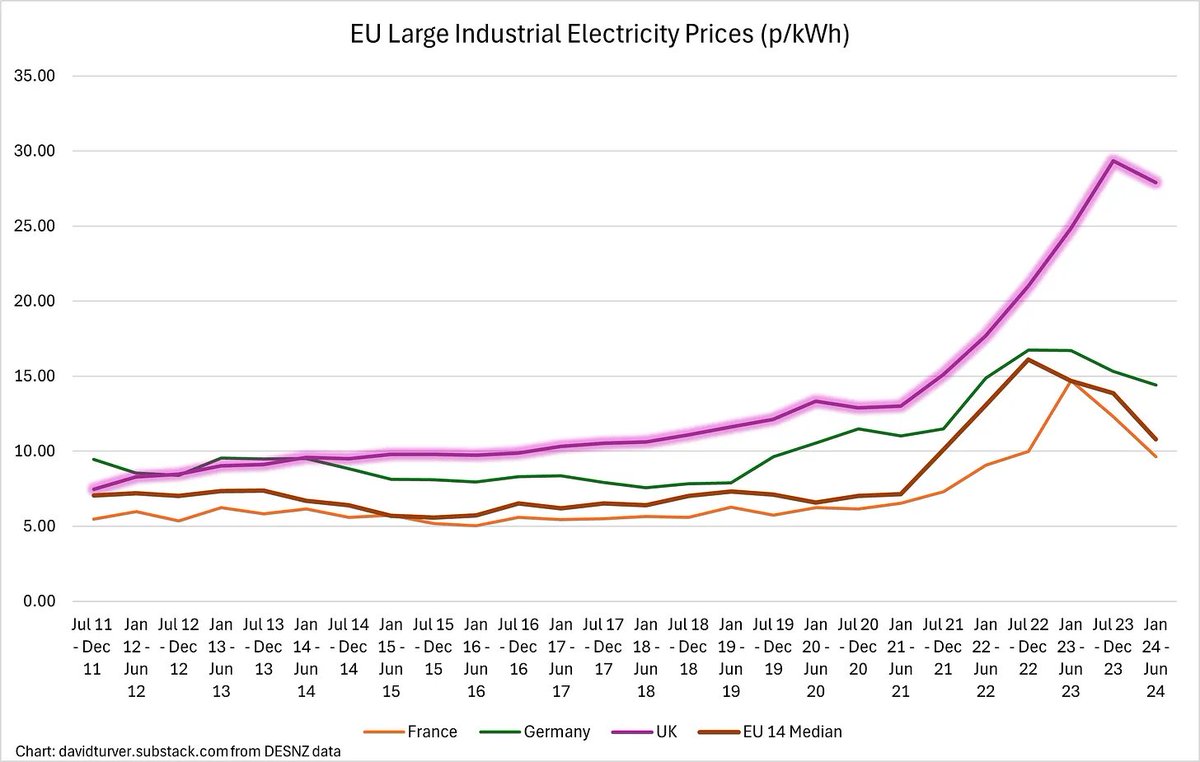
For medium UK industrial users, prices are 188% higher than the EU14 median. For large & v large users the relative position is worse with UK prices >150% above EU14 median prices. Bear in mind, in 2023 UK prices were also 4X those of the US & 2.6X Korea. (2/n)
Renewables advocates always blame gas for our high prices. But UK industrial gas prices are around the EU14 median. This looks OK, until you realise that UK gas prices are some 5X those in the US & Canada (3/n)

https://x.com/7Kiwi/status/1842831504075857972
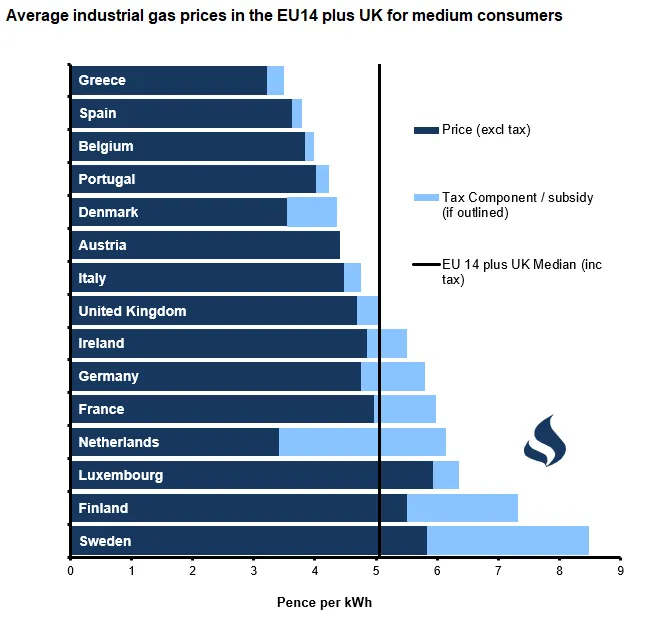
The UK electricity to gas price ratio at 6 is much higher than the EU14 median. It can't be gas driving electricity prices. Renewables subsidies and their associated costs such as grid balancing, capacity market, storage, grid expansion + carbon taxes must be the culprit (4/n) 
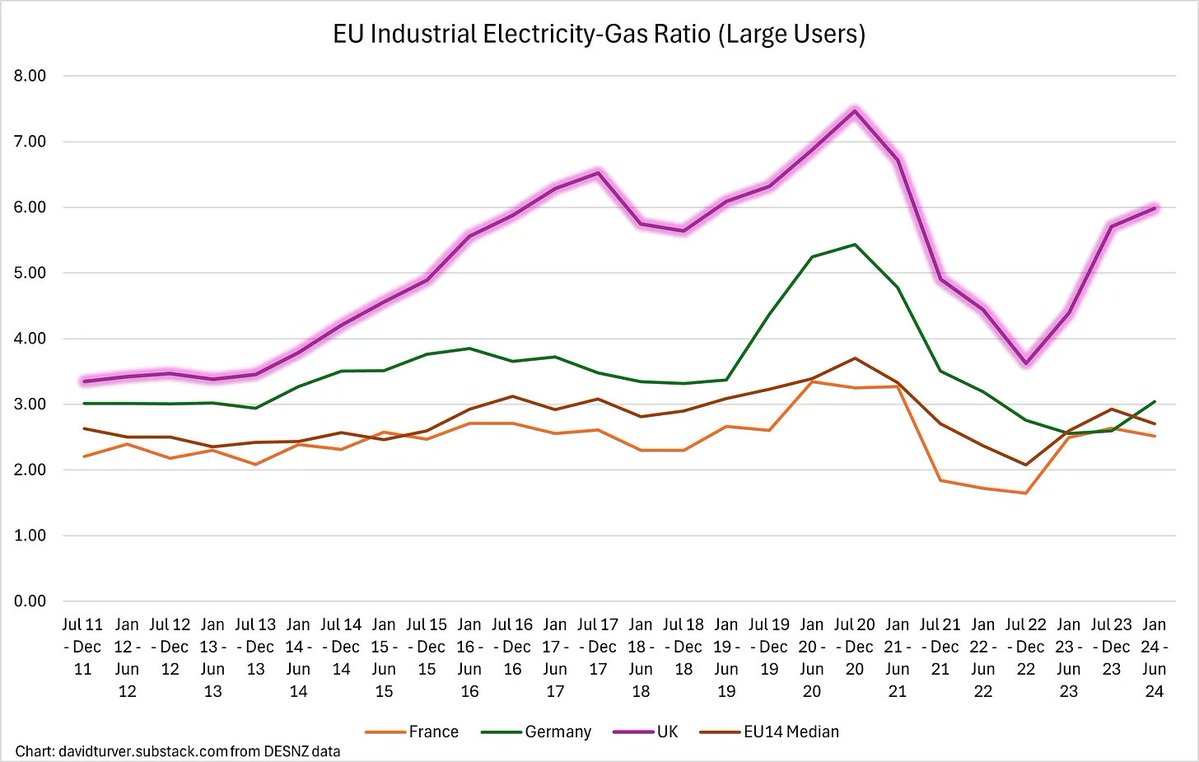
Domestic electricity costs >4X domestic gas, whereas the EU14 median for the ratio is just over 2. Again, it's not gas driving UK electricity prices (7/n) 
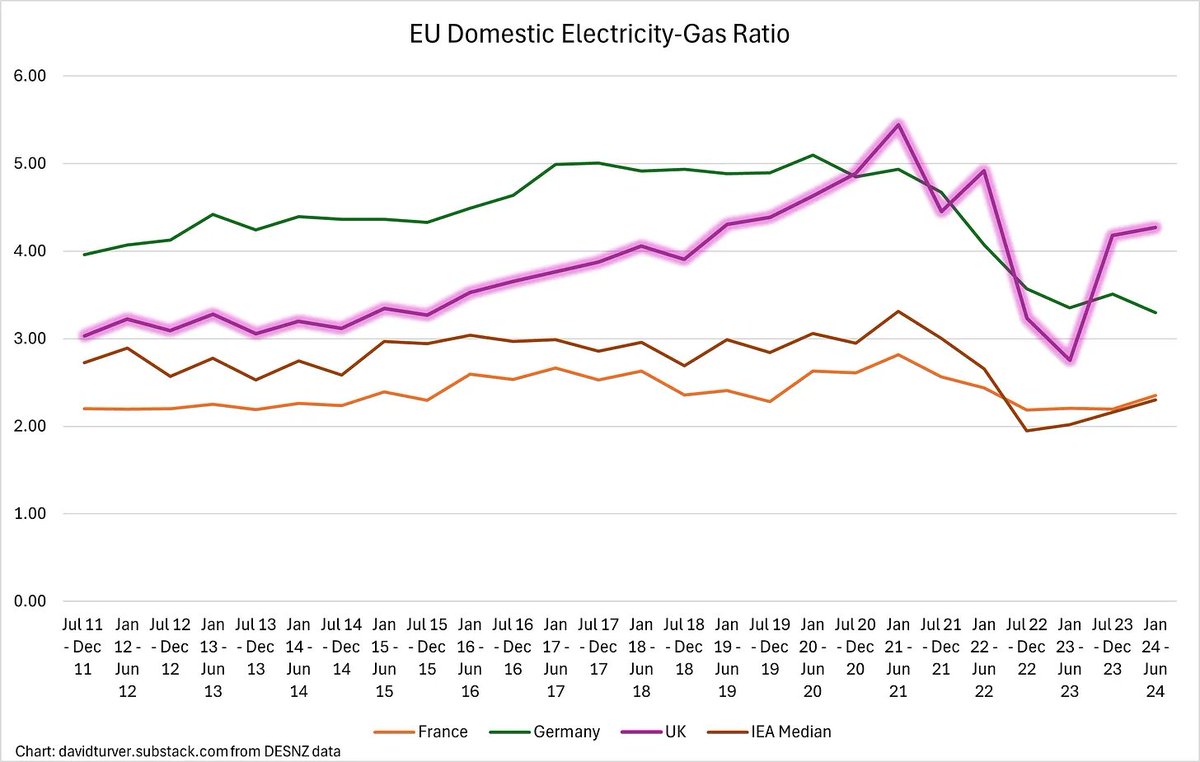
The gap between prices for small and large domestic users of both gas and electricity is widening, indicating the poor are paying much more for their electricity through high standing charges, a great deal of which is extra network costs to connect remote renewables (8/n). 
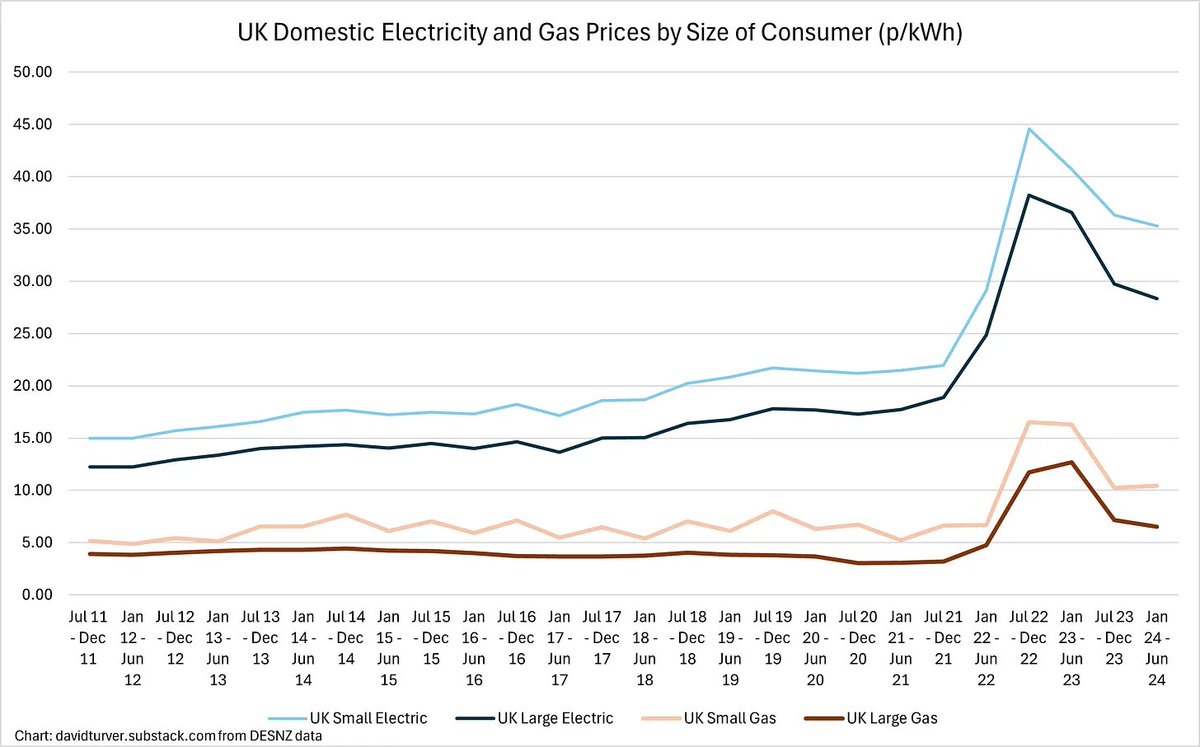
We cannot go on like this. Such expensive energy is an existential threat to the economy. Successive governments have claimed to be "climate leaders" but instead we are winning the gold medal in the electricity price Olympics. We need to ditch Net Zero now. (9/n)
If you enjoyed this thread please like, share and sign up for free to read the full article here (10/10):
davidturver.substack.com/p/uk-industria…
davidturver.substack.com/p/uk-industria…
HI @threadreaderapp unroll please.
• • •
Missing some Tweet in this thread? You can try to
force a refresh

